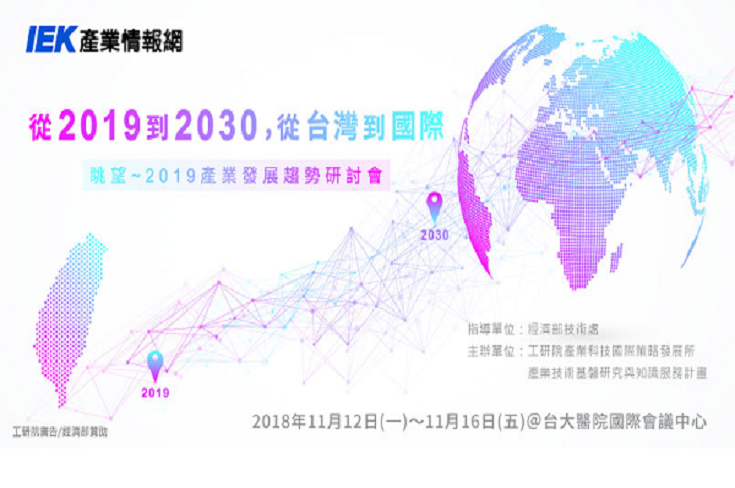Taiwan researcher urges optimism as AI changes human labor and industry in years ahead

The trend is unavoidable, and will spur job creation in the long term, says ITRI analyst Huang Hsiao-Wen
An analyst with Taiwan’s Industrial Technology Research Institute (ITRI), Huang Yi-Wen (黃筱雯), discussed the potential impact of artificial intelligence on the human work force in the coming decades at the IEK industrial Innovation seminar in Taipei on Nov. 13.
At a yearly conference hosted by the ITRI Industrial Economic and Knowledge Center (IEK工研院), Huang, addressing academics and engineers, stated that in the long term, with the development of AI and the Internet of Things, AI will eventually find its way into all aspects of human life.
Huang also claims that despite the significant impact this will have on human labor, that there is a bright side of the developments to look forward to.
Even though many jobs will be replaced by automated labor driven by AI and deep machine learning, an entire new field of jobs will also be opened to humans, specifically jobs opportunities in the digital sphere.
Addressing this year’s IEK Industrial Innovation Seminar, with a theme of “2030: Shifting Talent Trends” (2030人才翻轉大趨勢), Huang compared the advent of the AI era, and the Internet of things, to the beginning of the computer age in the 1980s, when PCs began to be introduced into the workplaces of the world.
Huang believes that even though radical innovation like AI will result in many lost jobs in the short term, in the long term, an abundance of new types of work are certain to emerge in industries both directly and indirectly related to the robotics field and development of AI and the IoT.
According to Liberty Times, Huang, who is an analyst at ITRI’s Economics and Knowledge Center expresses optimism that by adopting AI technology and expanding smart applications throughout various industries will ultimately lead to more productivity and more revenue for all manner of enterprises.
This in turn will lead to continuous investment into new areas of research, spurring new approaches to education and job training. Huang asserts these new models for industry will ultimately enrich the lives of individuals, increasing income and consumption power.
Huang suggests that as this new labor model expands, people will begin to live longer. This in turn will lead to a larger consumer base which will expand the need for sales representatives in the retail sector. Likewise, the need for more healthcare workers and assistants will also increase along with the longer average human lifespans.
Huang’s ultimate message seems to be that the adoption of AI technology and subsequent labor force replacement is unavoidable, and humans should try to adopt a positive outlook with regard to possible benefits, rather than worrying over potential dangers.

